English Literature
UCAS code Q320
- Study mode
- Full-time
- Duration
- 3 years
- Start date and application deadlines
-
- Start date
UCAS code Q320
Study English Literature at Liverpool and learn to understand why people write, who for, and what their texts mean. English literature is a great choice for avid readers. You'll do reading - lots of it - and delve into texts for deep analysis
You will have the opportunity to study a wide range of literary forms, genres and themes, from the early medieval period to the present day.
You’ll learn to interpret literature from many perspectives: historical, sociological, political and more, making this course both intellectually challenging and rewarding. You’ll be taught by a staff including award-winning writers and four BBC ‘New Generation Thinkers’, on a course informed by original academic research.
Students are taught in small groups for a collaborative and conversational experience.
Creative Writing modules are offered in years two and three.
Take your university experience even further on a paid year-long industry placement, or spend a year abroad at a partner university or our China campus.
English Literature students graduate with sought-after skills that apply to a wide range of careers, including journalism, arts and marketing.
This programme is available with an optional year in industry. If you choose this option, year three is spent on a paid placement within an organisation in industry, broadly defined. You will be supported by the School of the Arts and the Department throughout, and your reflexive written account of the experience will contribute towards your final degree result. If you wish to study this programme with a year in industry, please put the option code ‘YI’ in the ‘further choices’ section of your UCAS application form.
We are pleased to offer two attainment scholarships per year to undergraduate students from the UK. The scholarship covers the entire UK tuition fee for both years two and three. Awards will be made by the department at the end of year one, based on student performance.

We’re proud to announce we’ve been awarded a Gold rating for educational excellence.
Discover what you'll learn, what you'll study, and how you'll be taught and assessed.
In your first year, you will develop key skills and subject knowledge that will equip you for more advanced and specialised modules in the later years of the degree. You’ll explore the ways in which literary texts and themes are rewritten and reinterpreted in different historical and cultural contexts. You will also consider how literary texts interact with and speak to their own and other social contexts, what it means to interpret texts, and how meanings emerge from our reading.
| Compulsory modules | Credits |
|---|---|
| CLOSE READING (ENGL103) | 15 |
| LITERATURE AND PLACE: CITY, COUNTRY, PLANET (ENGL102) | 30 |
| LITERATURE IN TIME (ENGL117) | 30 |
| WAYS OF READING (ENGL113) | 15 |
Programme details and modules listed are illustrative only and subject to change.
In your second year, you will choose from a range of optional modules that will give you the opportunity to study texts from particular literary periods, ranging from the medieval to the modern. These modules will help you to develop a detailed understanding of the range of literature written in a particular period, and the ways in which they relate to wider social, artistic, and political contexts.
Programme details and modules listed are illustrative only and subject to change.
The broad range of optional modules in your final year will allow further specialisation and a focus on specific genres and/or themes. You’ll also have options to study modules in creative writing.
Modules at this level are often based on the current research of our academic staff and will involve you in conversations about the present and future directions of the subject, while also enabling you to develop your skills of independent research.
Programme details and modules listed are illustrative only and subject to change.
This programme is available with a year in industry. Year three is spent on a paid placement within an organisation in industry, broadly defined. You will be supported by the School of the Arts and the department throughout, and your reflexive written account of the experience will contribute towards your final degree result. If you wish to study this programme with a year in industry, please put the option code ‘YI’ in the ‘further choices’ section of your UCAS application form.
Programme details and modules listed are illustrative only and subject to change.
In year one, you will take modules aimed at developing the skills necessary for advanced study. From year two, you will choose from a range of literature modules that focus on specific periods, genres or themes. You will develop specialist knowledge of English literature, while also developing analytical skills that will inform and be enriched by your study of another subject.
In each year, you will take 60 credits of English and 60 credits from your other subject choice.
You will experience a mix of lectures, seminars, workshops and tutorials, with no modules being taught entirely through lectures. Alongside independent study and research, some modules require group work. Most teaching takes place in small groups where you’ll share and explore ideas with your tutors and peers. You’ll also attend workshops and lectures and self-direct study through the course reading list and conducting research for your essays and projects. Academic staff area regularly available for one-to-one feedback and support. Course material is available 24-hours a day on Canvas, our online learning platform, and study support is available from our dedicated student services team.
We provide an online programme of study skills to help with the necessary standards of referencing and presentation in written work. Tutorials allow for discussion of key readings, concepts and ideas, typically in groups of up to nine students. Seminar groups are larger, but do not normally exceed 18; they usually last for between one and a half to two hours. Workshops are similar in size but have a more distinct practical element (eg in drama or language modules). In addition, in years two and three, you will participate to a greater or lesser extent in a range of other formative activities: seminar presentations, creative writing and peer teaching.
Students on this course are assessed with a combination of exams and coursework. Coursework includes essays, group projects, presentations and research projects. You’ll submit coursework which contributes to your final grade during years two and three.
We have a distinctive approach to education, the Liverpool Curriculum Framework, which focuses on research-connected teaching, active learning, and authentic assessment to ensure our students graduate as digitally fluent and confident global citizens.
The Liverpool Curriculum framework sets out our distinctive approach to education. Our teaching staff support our students to develop academic knowledge, skills, and understanding alongside our graduate attributes:
Our curriculum is characterised by the three Liverpool Hallmarks:
All this is underpinned by our core value of inclusivity and commitment to providing a curriculum that is accessible to all students.
The qualifications and exam results you'll need to apply for this course.
| Qualification | Details |
|---|---|
| A levels |
BBC (including English: B) |
| BTEC Level 3 national extended diploma |
DDM and grade B in A level English. |
| BTEC combinations |
BTEC National Diploma DM plus grade B at English A level; BTEC National Extended Certificate M plus grade B in English at A level and grade B in another A level. |
| Welsh Baccalaureate Advanced |
Grade C, plus A level grades BB including grade B in English. |
| Access |
Pass relevant Access to HE Diploma with 45 Level 3 credits with 27 at Distinction and 18 at Merit. Requires level 3 credits at Distinction in English. |
Studying with us means you can tailor your degree to suit you. Here's what is available on this course.
University of Liverpool students can choose from an exciting range of study placements at partner universities worldwide. Choose to spend a year at XJTLU in China or a year or semester at an institution of your choice.
Immerse yourself in Chinese culture on an optional additional year at Xi'an Jiaotong Liverpool University in stunning Suzhou.
Broaden your world by spending an additional year of study at a partner university abroad following your second year of study.
Take a semester of your second year of study at one of our worldwide partner institutions.
Spend a summer abroad on a study placement or research project at one of our worldwide partner institutions.
Year in industry placements give you an in-depth workplace experience where you can develop your skills and apply your learning.
You don't need to decide now - you can choose to add a year in industry after you've begun your degree.
Learn more about year in industry
To spend a year in industry, you'll need to secure a placement with an organisation. If you're unable to find a placement, you'll continue with the standard version of the course without a year in industry.
Every student at The University of Liverpool can study a language as part of, or alongside their degree. You can choose:
With a combined degree, you can study two subjects as part of the same degree programme.
The Department of English is based in the School of the Arts, although teaching will take place across the campus. We are committed to small group teaching, which encourages a more rewarding learning experience, where ideas are shared and explored with your peers and tutors. You’ll have access to extensive library facilities, special collections and Liverpool’s renowned museums, libraries and galleries.
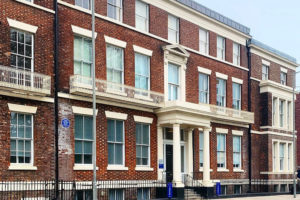
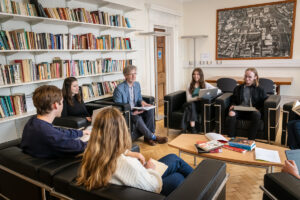

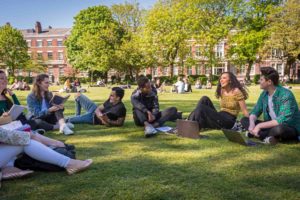


What’s it like to Study English at Liverpool? A conversation between Alex Carabine and Dr Natalie Hanna.
From arrival to alumni, we’re with you all the way:
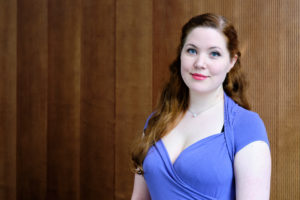
The staff are the best thing about the English department. They’re enthusiastic, encouraging, and incredibly knowledgeable about their fields.

Want to find out more about student life?
Chat with our student ambassadors and ask any questions you have.
A day in the life of English student Scarlett Wager-Leigh.
As a student in the School of the Arts, you will be supported to maximise your employability from day one. Our English degree programmes are valued by employers who recognise the skills our students develop, including teamwork, project design, critical thinking, proficiency in text analysis and communication and presentation skills.
The School has its own Placements and Employability Officer, and you will have the opportunity to undertake a semester-long work placement or a year in industry. We offer a popular poetry publishing placement through the SOTA300 work experience module, and you can read about the experiences of students who have undertaken this placement – and since found employment in the publishing industry – here.
Many graduates move on to have careers in the arts, the media, publishing, marketing, events, and project management, working for employers like:
4 in 5 English students find their main activity after graduation meaningful.
(Graduate Outcomes, 2018-19.)
Hear what graduates say about their career progression and life after university.
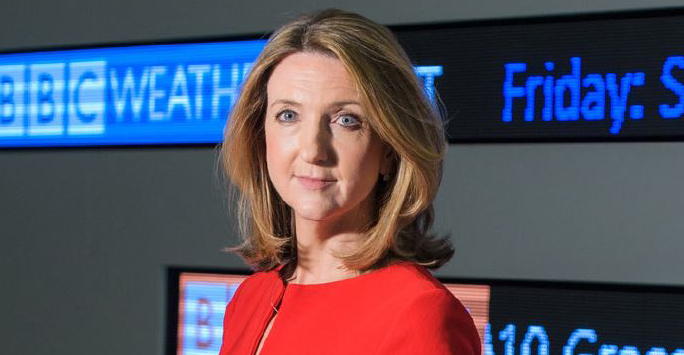
The main reason I had an amazing time was that I made some wonderful friends, some I am still very close to now. My course opened my eyes to so many novels and plays and texts that I would never have read otherwise. And that’s one of the points about university.
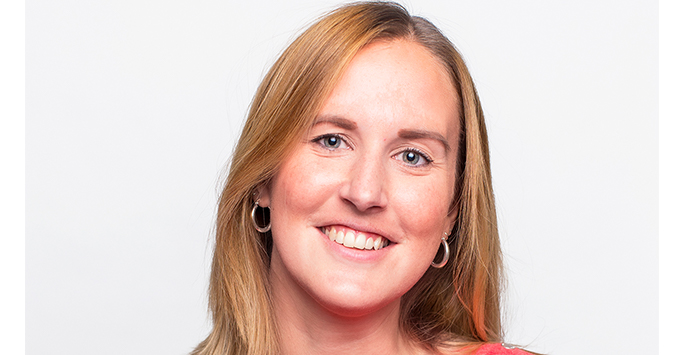
With an English degree, I learnt to read and absorb information quickly, understand the impact of creative writing on an audience and developed a fine attention to detail, all of which helped me when starting out as a journalist and then as I moved into PR.
Your tuition fees, funding your studies, and other costs to consider.
Full-time place, per year - £9,535
Year in industry fee - £1,905
Year abroad fee - £1,430 (applies to year in China)
Full-time place, per year - £24,100
Year in industry fee - £1,905
Year abroad fee - £12,050 (applies to year in China)
The tuition fees shown are correct for 2025/26 entry. Please note that the year abroad fee also applies to the year in China.
Tuition fees cover the cost of your teaching and assessment, operating facilities such as libraries, IT equipment, and access to academic and personal support. Learn more about paying for your studies.
Your tuition fee covers almost everything, but you may have additional study costs to consider, such as books or stationary.
Find out more about the additional study costs that may apply to this course.
We offer a range of scholarships and bursaries that could help pay your tuition and living expenses.
If you’re a UK student joining an undergraduate degree and have a household income below £35,000, you could be eligible for a Liverpool Bursary worth up to £2,000 for each year of undergraduate study.
Apply for an Asylum Seekers Scholarship and you could have your tuition fees paid in full and receive help with study costs. You’ll need to have applied for asylum in the UK, or be the dependant of an asylum seeker, and be joining an eligible undergraduate degree.
If you’ve spent 13 or more weeks in Local Authority care since age 14, you could be eligible for a bursary of £3,000 per year of study. You’ll need to be a UK student joining an eligible undergraduate degree and be aged 28 or above on 1 September in the year you start.
Are you a UK student with a Black African or Caribbean heritage and a household income of £25,000 or less? You could be eligible to apply for a Cowrie Foundation Scholarship worth up to £8,000 for each year of undergraduate study.
If you’re a UK student identified as estranged by Student Finance England (or the equivalent UK funding body), you could be eligible for a bursary of £1,000 for each year of undergraduate study.
Joining a School of Biosciences degree and have a household income of less than £25,000? If you’re a UK student, you could apply to receive £4,500 per year for three years of your undergraduate course.
Do you live in the Liverpool City Region with a household income of £25,000 or less? Did neither of your parents attend University? You could be eligible to apply for a Nolan Scholarship worth £5,000 per year for three years of undergraduate study.
Are you a UK student with a household income of £25,000 or less? If you’ve participated in an eligible outreach programme, you could be eligible to apply for a Rigby Enterprise Award worth £5,000 per year for three years of your undergraduate degree.
Are you a UK student with a household income of £25,000 or less? Did neither of your parents attend University? You could be eligible to apply for a ROLABOTIC Scholarship worth £4,500 for each year of your undergraduate degree.
Apply to receive tailored training support to enhance your sporting performance. Our athlete support package includes a range of benefits, from bespoke strength and conditioning training to physiotherapy sessions and one-to-one nutritional advice.
Joining a degree in the School of Electrical Engineering, Electronics and Computer Science? If you’re a UK student with household income below £25,000, you could be eligible to apply for £5,000 a year for three years of study. Two awards will be available per academic year.
If you’re a young adult and a registered carer in the UK, you might be eligible for a £1,000 bursary for each year of study. You’ll need to be aged 18-25 on 1 September in the year you start your undergraduate degree.
Use our handy chatbot for your Clearing enquiries.
Last updated 11 July 2025 / / Programme terms and conditions